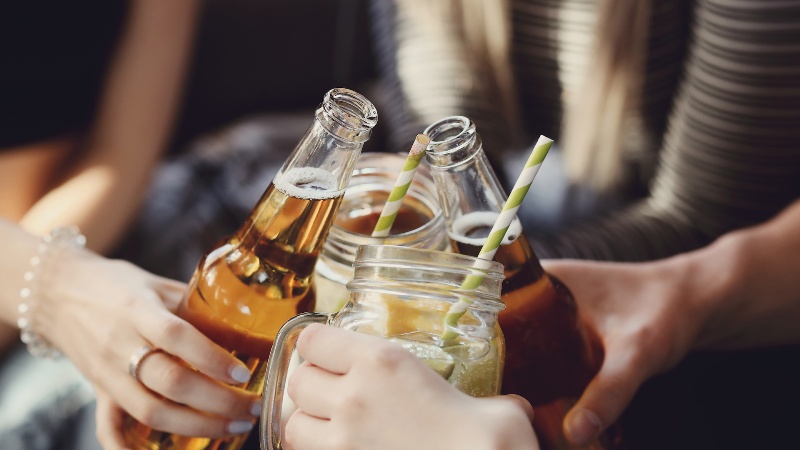
Among the many social issues that India faces one of them is the increasing number of young population engaging in consumption of alcohol. Under the Indian Constitution, legal policies governing the manufacture, sale, purchase and consumption of alcohol is to be regulated by individual States. In Maharashtra the legal age for consumption of beer is 21 and other liquors is 25 years of age (1).
The World Health Organization defines young people as aged 10-24 years, during which period rapid changes occur in neural circuits which deal with social and emotional behavior and gradual changes in thinking ahead, planning and decision –making abilities. Consuming alcohol during this period adversely impacts these developmental changes in the brain (2). Research shows that people who begin drinking before the age of 15 are four times more likely to develop alcohol dependence at some time in their lives as compared with those who have their first drink at age 20 or older (age 25) (3). It also goes without saying that a person’s decision making skill are impaired while under the influence of alcohol, this effect is amplified in a young person’s mind who are more likely to engage in risk-taking behavior that can result in illness, injury, and death. (4)
In a survey conducted by the first year students of St. Xavier’s college which was later presented to the Narcotics Control Bureau of India revealed that 75% youngsters in India consumed alcohol before turning 21 (5). Community against Drunken Driving (CADD), a non-profit organization in Delhi, conducted a survey of 1000 youths outside 50 prominent liquor shops, bars, restaurants, etc. to assess the number of people drinking before the permitted age. Out of the 1000 people surveyed, 88.8% had consumed alcohol before 25 years of age, 87.3% were involved in binge drinking and 48.3% said rash driving and bike stunts were common after drinking. (6) This survey also revealed that while 66.7% of the total people surveyed obtained their alcohol from bars, pubs, liquor shops, and restaurants etc. 19. 9% of youth obtained it from family members, friends, or older siblings.
Prince Singhal, activist, road safety expert and founder of CADD, said, “Government liquor vends, bars, pubs, excise department, police, none of them check the age of consumers, not only making a complete mockery of the minimum age law but also severely fueling underage drinking and drunk driving which results in loss of life in road accidents”. The legal drinking age in Delhi is 25 years and about 67% of the total people surveyed by CADD in the age group of 18-25 years, purchased alcohol from liquor vends but were never asked for age proof.(7)
The Bombay prohibition Act provides for prohibition of sale of liquor to minors however, the act does not talk about penalties for failure in observing this duty but under the Juvenile Justice Act, Section 77 provides that, “Whoever gives, or causes to be given, to any child any intoxicating liquor or any narcotic drug or tobacco products or psychotropic substance, except on the order of a duly qualified medical practitioner, shall be punishable with rigorous imprisonment for a term which may extend to seven years and shall also be liable to a fine which may extend up to one lakh rupees.” Apart from this one provision no other legislation expressly provides for any penalties for sale of alcohol to minors. The Maharashtra Excise Manual provides for a general provision for punishment in case of contravention of any provisions of the said act but again it does not expressly state punishments for sale of liquor to minor. It therefore goes without saying that there is a need for strict surveillance of liquor stores to prohibit the sale of liquor to young people otherwise the mere setting of a legal age for alcohol consumption will serve no purpose.

